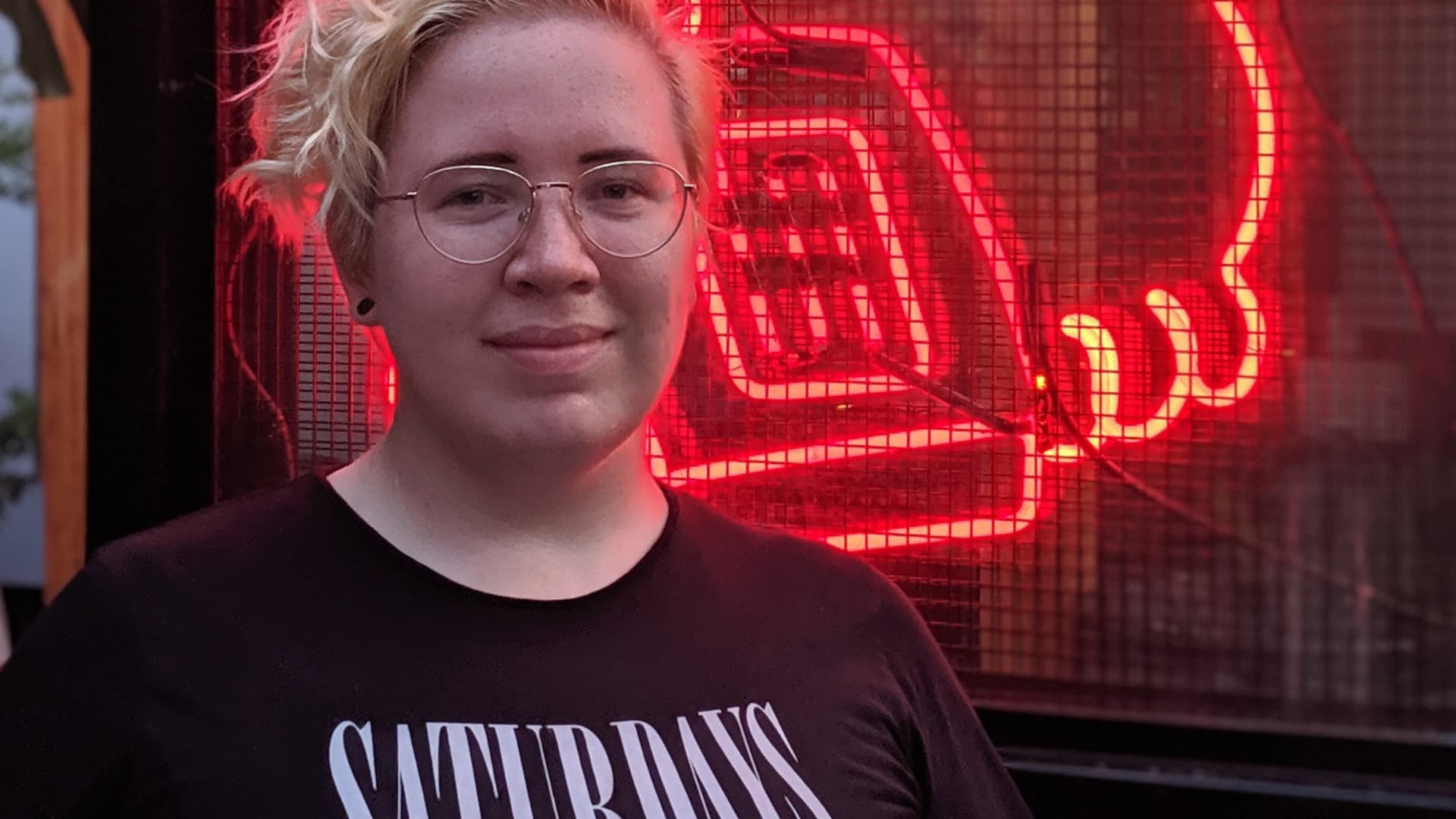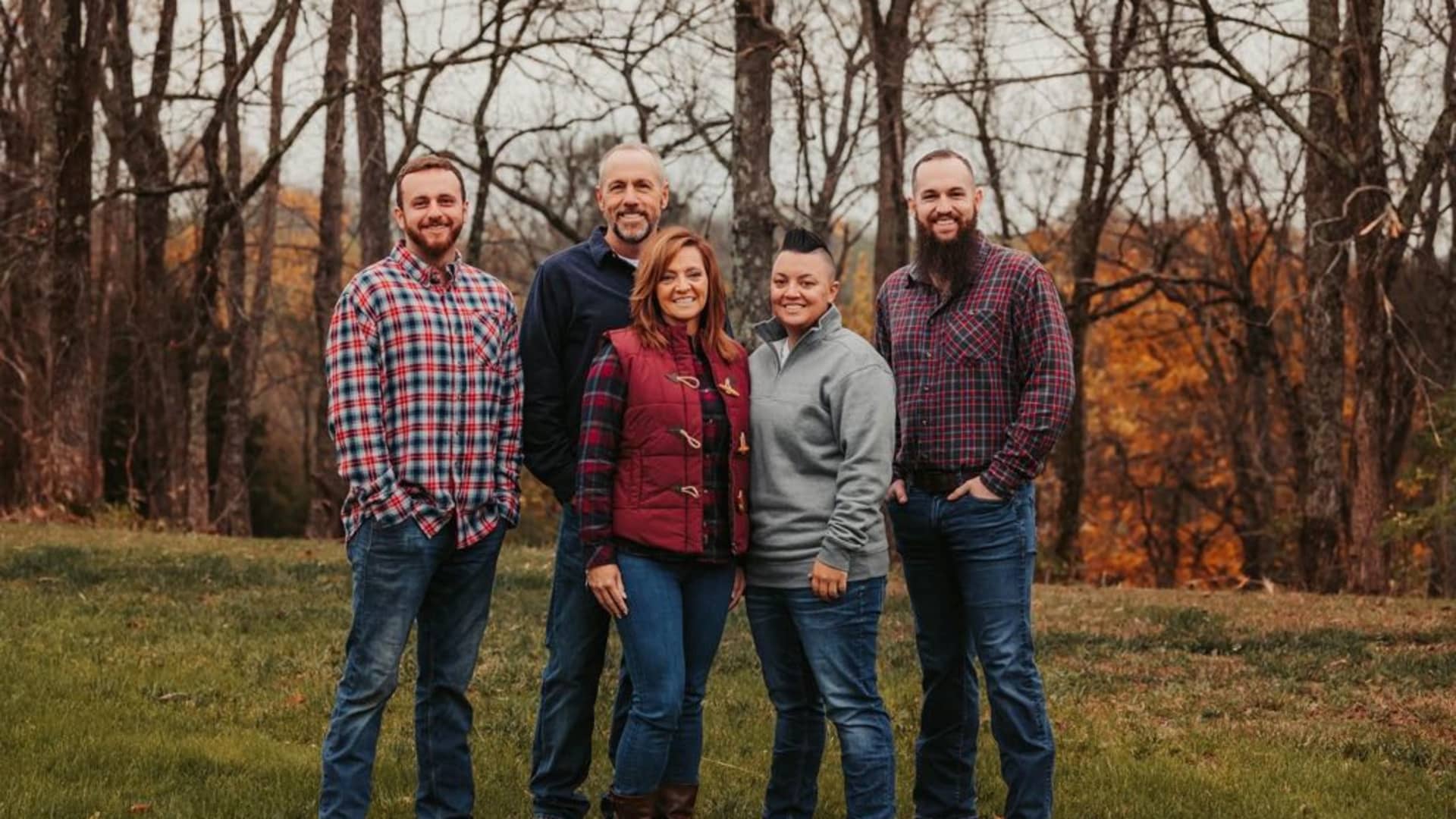
When Ali Fazal began interviewing for a position with Grin, an influencer marketing platform, earlier this year, he was enthusiastic about all the company had to offer: the ability to lead as their vice president of marketing, a small but fast-growing team and a supportive work environment.
The only problem? Grin is headquartered in Sacramento, California, while Fazal, 32, resides in New York City.
But with working from home the norm for office workers during the pandemic, Grin decided to make remote work a permanent fixture for employees. It sealed the deal for Fazal, who says he likely wouldn't have taken the job it if required relocating to the smaller California capital.
Having grown up in a small town in Texas, Fazal has spent his adult life in bigger cities with more diverse communities, like New York, San Francisco and Washington, D.C. "I wanted to be in an environment that was more accepting and inclusive than where I grew up," Fazal says. "Big cities are often a safe haven for LGBT people."
We're making it easier for you to find stories that matter with our new newsletter — The 4Front. Sign up here and get news that is important for you to your inbox.

Fazal says the future of remote work could be a "game changer" for workplace inclusion for LGBTQ individuals like himself, who won't have to choose between the place where they've built a supportive community and an employer located in a different city.
Now three months into working for Grin, Fazal is glad the company embraced remote work and can see the inclusive benefits it can offer.
Money Report
Supporting inclusion and belonging through remote work
As experts forecast the future of remote work, many say the accommodation can be a strategy for improved diversity, inclusion and belonging. Indeed, a physical workplace that replicates the power dynamics of society in general can be harmful for marginalized individuals, including LGBTQ people.
One LinkedIn survey of 2,001 LBGTQ professionals found that nearly a quarter, 24%, were not open about their identity in their workplace, while a similar share, 26%, worried being open would cause coworkers to treat them differently. Many cited concerns of being overlooked for raises or promotions. And nearly a third, 31%, say they've faced blatant discrimination or microaggressions at work.
For Nikita Solberg, 28, of New York, the ability to work remotely means having greater control of their surroundings and less pressure to present themselves in a certain way. When they started their job as a sales development representative at the HR platform Hibob in January, they felt comfortable making their nonbinary pronouns visible throughout their onboarding process.
For Solberg, sharing their pronouns on their LinkedIn page, in their email signature and on their videoconferencing profile is "like being at a party and wearing a nametag. Being able to work remotely and having your [virtual presence] represent you by sharing your pronouns right off the bat has been a huge benefit. I'm not constantly having to introduce my pronouns."

Fewer office run-ins with strangers also means fewer judgments based on appearance, or even well-intentioned comments that can "come off differently than what you want," Solberg says. Virtual interactions, meanwhile, can often be more intentional and require making every minute count, whether it's with a colleague or a client. "When you introduce yourself to someone, what do you want them to know about you right off the bat? For me, I feel welcome to share my gender," Solberg says.
LGBTQ representation at work
According to LinkedIn's survey, LGBTQ individuals say being open at work helps them connect with others for support and build better relationships within their profession.
As Solberg felt more comfortable expressing and representing their nonbinary identity in a remote setting, their manager took note and invited them to lead a virtual meeting with the sales team about it.
"I might be the first nonbinary person someone meets or works next to," Solberg says, "so being able to share what that means to me," and how to operate in a professional manner, was incredibly impactful.
After the small team discussion, leaders asked if other LGBTQ employees felt comfortable leading a companywide discussion of identity in the workplace, which allowed LGBTQ colleagues to come together over shared identities, and showed further support among allies at the company.
"Allowing that conversation to start from within was a great way to get people to start thinking about it in workplace and daily lives," Solberg says.
Promoting allyship at work and at home
With isolation and added stress during the pandemic, many companies encouraged individuals to find support through employee resource groups. For Glenda Tinnell, a recently retired administrative specialist at a Toyota plant in Lexington, Kentucky, that included connecting virtually with other LGBTQ allies through online discussions and events.
Tinnell, 51, says Toyota has been a "huge advocate for diversity and inclusion" during her 20 years with the company. But she didn't take part in some of their LGBTQ support groups until her daughter came out to her eight years ago.
"Up until she came out to me, I never really focused on the need to be an ally. I've always thought I was the type of person to treat everyone the same," Tinnell says. After seeing her daughter finally express herself to her family, however, "I saw the need for myself at that point to say, 'Maybe I need to learn more about this."

So she joined her company's Spectrum group for LGBTQ members and allies and began to attend events, such as happy hours and group discussions. Tinnell found it especially welcoming to allies like herself to better understand LGBTQ identities without feeling like she was asking inappropriate questions or saying the wrong thing as she was learning.
But when the pandemic ceased all in-person gatherings, Tinnell says Spectrum quickly shifted online. Organizers developed forums and, because everything was virtual, were able to invite outside resources like leaders from the national organization PFLAG. Events ranged from educational — like a group for parents of LGBTQ kids to discuss their allyship work — as well as fun social activities, like drag bingo nights.
Tinnell adds the group continued to provide access to the company's mental health and counseling resources throughout the pandemic, as well. Tinnell hopes opportunities to connect virtually will continue, even as in-person events resume. Some people may find it easier to attend an educational panel when it's just a Zoom link away, or if the presentation can be viewed at a more convenient time. She also thinks providing the option for people to attend conferences and networking events remotely, as Spectrum organizers did for the 2020 Out & Equal Workplace Summit, would be especially beneficial to smaller companies with fewer financial resources.
"Even with remote work, they've found great ways to continue their education and leadership," she says.
Enforcing inclusive policies online
Even with some of the inclusive benefits of remote work, companies must pay close attention to how they support and protect employees while virtual.
A survey of remote workers in tech from the research group Project Include found that online harassment and hostility went up for LGBTQ workers during the pandemic. Some said existing pressures on marginalized workers — including young, female, and nonbinary employees — got worse in the transition to working remotely. Others indicated that when they did face online harassment, sometimes coming from HR or a CEO, they didn't report it out of fear of retaliation or because they didn't think corrective action would follow.
These incidents show that just as employers should create and enforce policies that protect all workers in a physical workplace, they must also be considered in online spaces. Overall, more than half of people surveyed by LinkedIn said they would like companies to have clear policies to protect LGBTQ workers.
Leaders can set clear expectations of workplace interactions, in-person and online, by updating their code of conduct and asking about harm proactively instead of waiting for employees to report. To build a culture of trust, the researchers recommend getting rid of non-disclosure agreements; ensuring wrongdoers face consequence and corrective action; and having leadership check back on problem situations every quarter.
"Make the tough decisions to punish for harassing and hostile behaviors and reward for ensuring employee belonging and mental health," the report authors write. "It will build trust and a culture of belonging and performance."
Check out: Activist Kayla Gore is building tiny homes—and trans futures—in Memphis, Tennessee
Sign up now: Get smarter about your money and career with our weekly newsletter






